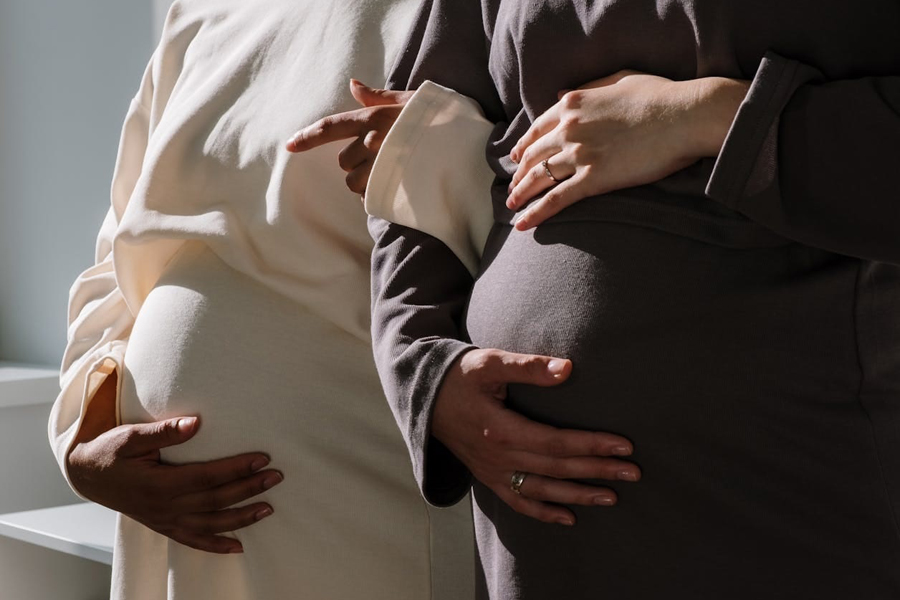Ugandans working in Dubai, Qatar, Kuwait and Oman are on their own- Government
Government has suspended externalisation of Ugandan workers to Oman, a nation on the Arabian Peninsula.
The minister for Gender, Labour and social development Janat Mukwaya explained that the decision to bar Ugandans from seeking Jobs in Oman was informed by reports of human rights violations against Ugandans in that country.
Keep Reading
This she said during the opening of a two-day symposium at Hotel Africana Wednesday, organised by the Uganda Association of External Recruitment Agencies.
“Where we need immediate action is Oman, we have suspended any labour externalisation to the country due to the many cases of violation of migrant workers’ rights,” she said, adding that a fact technical finding mission will be sent to Oman to make reliable reports in order for Uganda to make binding political decisions.
Government insists that only Saudi Arabi and Jordan are the only ones allowed to import labour, others in different Arab countries are there on their own.
“Those that are in Kuwait, United Arab Emirates (UAE), Qatar, Bahrain and Oman are there on their own,” she added.
The Saudi Arabian ambassador to Uganda revealed that more than 13,000 Ugandans are employed in the country.
In March 2017, government moved to block job hunters abroad, particularly domestic workers to Oman, saying they cannot guarantee that they will be safe while on duty there.
This came shortly after Government lifted a ban it imposed on export of domestic workers abroad ending a year of restriction on movement of Ugandan maidservants to Middle East countries.
The ban was imposed in January 2018 following a spate of rising cases of abuse on Uganda girls in the Middle East, some of which included sexual molestation, torture or denial of pay. However, it would later be withdrawn after government claimed that the ban instead increased underground exports and human trafficking.
According to a report by Human Rights Watch reveals that that because of Oman’s immigrant labor laws, tying employment to a specific family’s sponsorship, many foreign employees particularly female domestic workers, face exploitation and abuse at the hands of their employers and have little means of recourse to protect themselves.
The report said that at least 130,000 female migrant domestic workers work in Oman, and alleged that the neighbouring United Arab Emirates (UAE) serves as a human trafficking hub where recruiters sell migrants to families that then illegally transport them into Oman.
How serious is the Oman issue?
Members of Parliament sitting on the committee of Gender, Labour and Social Development last year revealed that over 48 Ugandans working in Arab countries died under mysterious circumstances.
Reports from the Ugandan mission at Abu Dhabi indicated that 48 Ugandan workers died in Arab countries after being subjected to inhuman treatment and their bodies were not returned.
Among the 48 dead Ugandans, 35 were women and 13 men and most of them were pushed to suicide by the treatment from their bosses. Among the countries where the 48 Ugandans died included; Kuwait, Bahrain and Oman.
In April this year, six Ugandan women, working as housemaids in different towns of the Middle East country of Oman, revealed to Daily Monitor that they had been confined by their employment agents in a private facility for several months undergoing torment.
The women said they were suffering strange illnesses but there was no medication guaranteed for them.
But what about those accepted countries?
A 31-year-old woman Juliet Nakiyimba, left Uganda for greener pastures in Jordan, but within a month’s stay, she had her kidneys removed and body repatriated to Uganda to the shock of her family members.
To Moses Nyakana, his wife and mother of five, Juliet Nakiyimba, had left their home in Kigagga zone in Makindye to attend to her sick parents but the story changed a month later when he was informed his wife was seriously sick and needed to be repatriated from Jordan.
Questions started lingering in Nyakana’s mind because he didn’t know how the wife who had gone to take care of her parents had ended up in Jordan, which is many miles away from their marital home in Makindye.
The unsuspecting husband would later call to establish whether she had reached safely but he attempts to reach Nakiyimba were futile because his number had been blacklisted.
It is alleged that Nyakana would after a few weeks be sent voice notes and WhatsApp messages by Nakiyimba to confirm to him that she had flown out of the country and that she had reached abroad safely for greener pastures.
According to Nyakana, things changed when he received a call in September from an unknown person informing him that his wife was very ill and was to be repatriated back, a call he never took serious because she had spent barely a month.
He was then called the second time by another anonymous person who told him that the deceased was mentally ill and had committed suicide by jumping through a window of a five storied building.
It is then that Nyakana reported the matter to police in a bid to establish the name of the company through which his wife was flown abroad.
It was established that Nakiyimba had been trafficked to Jordan in August through Rwanda by Al Saudi Agency, located along Salaama road.
According to the death certificate issued by Jordan’s ministry of interior, Civil Status and Passport, Nakiyimba died on September, 4, 2018 in the capital Amman before her body was repatriated on September 24.
The post mortem reports confirmed that two of the deceased’s kidneys had been removed a condition that may have resulted into her sudden death.
How do Ugandans end up in Arab countries?
On all occasions, the trafficking is done in syndicates between local agents, conduit country (especially Kenya) and the destinations especially Middle East countries.
Agents from destination countries pay for recruitment, transportation, travel documents and hiding places along the way before their ‘goods’ reach the desired destination.
Agents abroad spot the jobs and those in Uganda do the recruitment through opening up Facebook accounts and running google adverts to hook desperate clients.
On many occasions, the victims don’t have information about the kind of ‘jobs’ they are to be offered while in Middle East but because of being desperate, they accept to be flown abroad for ‘work’.
http://nilepost.co.ug/2018/10/18/how-31-year-old-was-trafficked-to-jordan-kidneys-removed-body-sent-home/
On reaching to Middle East countries, the lucky are offered jobs that mainly include being house maids but are overworked, underpaid and also sexually harassed and most of them end up committing suicide.
Meanwhile, the unlucky ones like Nakiyimba end up being sold for their internal organs like kidneys and liver among others to be removed.
The Numbers
The annual crime report released recently indicated that crimes related to trafficking of persons had increased by 41.6 percent from 125 registered in 2016 to 177 cases reported to police in 2017.
These numbers however don’t include cases of human trafficking not reported to police but actually happened.
According to police, over 50 people are trafficked from Uganda every day.


















